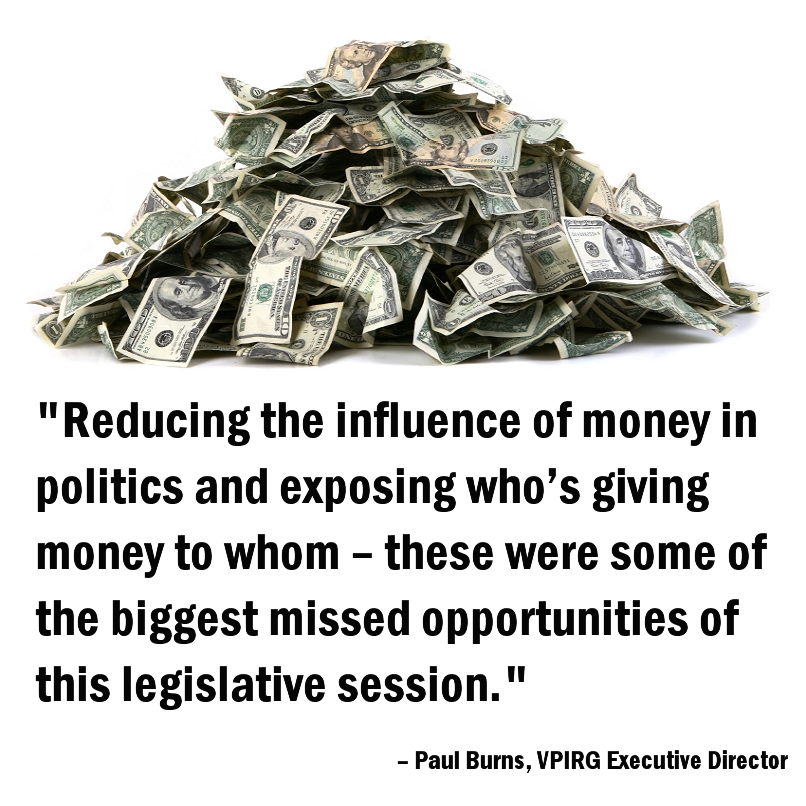For immediate release: May 14, 2013
Montpelier, VT – Despite the near-unanimous agreement at the beginning of the legislative session that this would be the year to pass meaningful reforms to Vermont’s campaign finance law, legislators declared the issue dead for the year late yesterday.
The House and Senate had passed differing versions of a bill (S.82) dealing with campaign finance and disclosure this session, and a conference committee had begun to work out a compromise before discussions came to a halt Monday evening.
Word came that the House Republicans were unwilling to suspend the rules as necessary to allow any possible agreement to have a chance to pass this year. Therefore, further consideration was put off until 2014.
“I’m disappointed, but not shocked,” said Paul Burns, executive director of the Vermont Public Interest Research Group (VPIRG) and a longtime advocate for election reform. “It turns out that campaign finance reform is just about the toughest kind of legislation to pass, because you’re asking politicians to change the rules of the game that got them elected.”
The Senate’s version of the legislation generally has lower limits on political contributions than the House proposal. However, the House bill contains a cap on what individuals, corporations or unions can give to a Super PAC, something the Senate bill would do only after such limits are given the thumbs up by federal courts.
Both versions of the legislation would expand reporting requirements and initiate a process to dramatically improve online access to campaign finance data at the Secretary of State’s office.
“Last year Vermonters were treated to the corrupting influence and negativity of Super PACs for the first time. Most people were sickened by the idea that a single wealthy donor could quietly pour more than $1 million into a Super PAC in order to try to elect or defeat her chosen candidates here,” said Burns.
The calls for reform came from all quarters following the election. But in the end, nothing passed.
“It’s easy to say that you want to reform the system. But the proof is in what gets passed and what doesn’t, year after year. The Legislature’s failure to reduce the influence of money in politics and to expose more clearly who’s giving money to whom is one of the great missed opportunities of the legislative session,” Burns concluded.
# # #

